Memory in names: Baku streets honouring heroes of oil glory A journey through history
The oil history of Azerbaijan is more than just a chronicle of one of its most vital industries. It is a grand epic filled with remarkable discoveries, illustrious names, and truly world-class achievements. Every page of this history holds examples of courage, brilliance, and selflessness, with the phrase “for the first time in the world” resonating proudly and frequently. Azerbaijani oil workers have contributed many outstanding chapters to global science and industry, leaving behind not only a rich legacy but also a living source of inspiration for future generations.
Today, many streets in Baku bear the names of individuals whose lives and labour are forever etched into the great oil chronicle of the nation. We walk along these streets every day, not always pausing to reflect on the remarkable figures behind the names — those whose devoted work laid the foundation of Azerbaijan’s oil industry.
Yusif Mammadaliyev was an outstanding Azerbaijani chemist, academician, and one of the founding fathers of petrochemical science in the country. Born in 1905 in the city of Ordubad, he demonstrated a thirst for knowledge from an early age. After studying at a pedagogical institute (now the Azerbaijan State Pedagogical University) and working as a teacher, Mammadaliyev enrolled in the Faculty of Chemistry at Moscow State University. There, he studied under renowned chemists Nikolay D. Zelinsky and Alexander A. Balandin, becoming one of the first graduates of the Laboratory of Organic Catalysis.
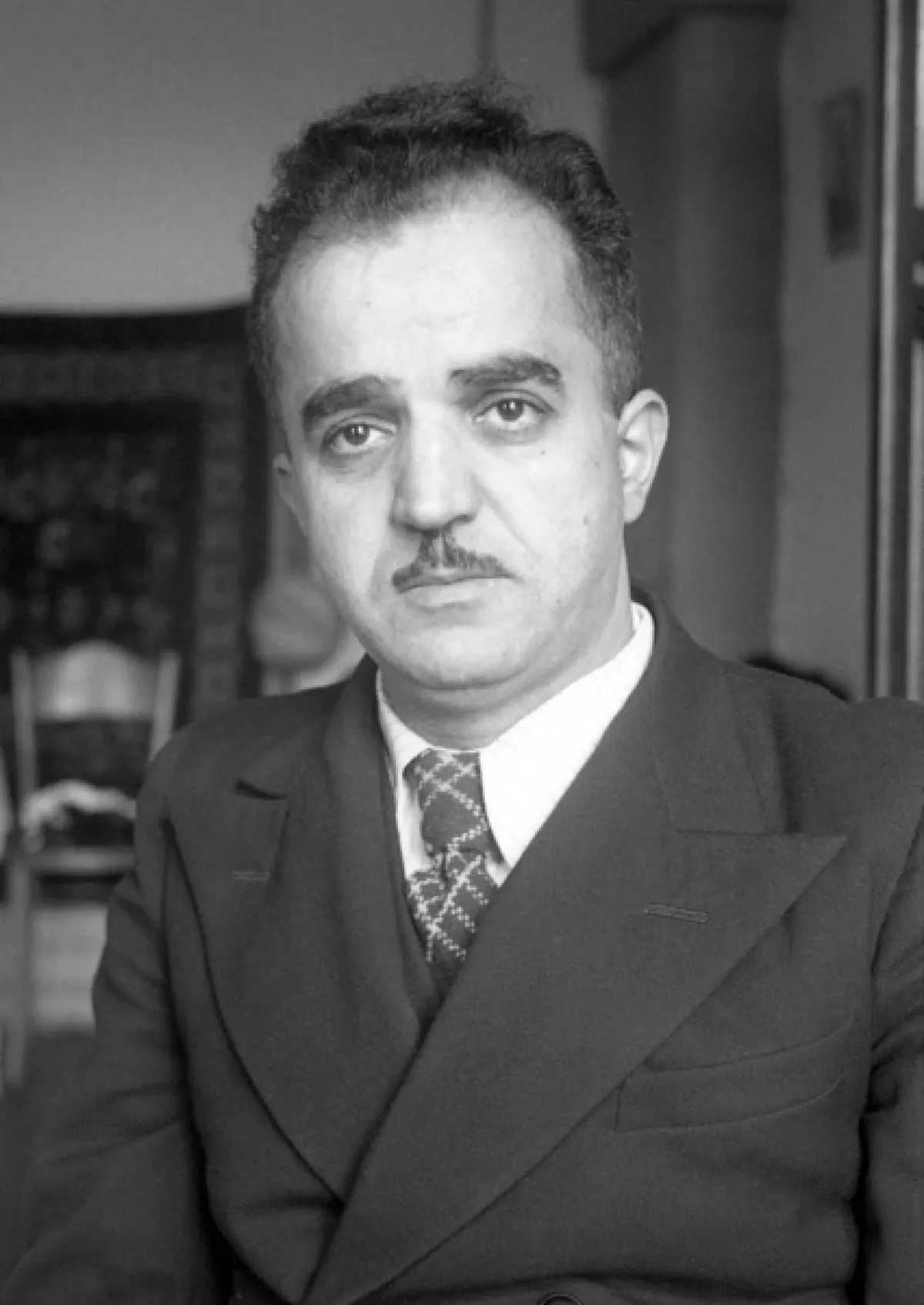
After graduating from university, he worked in Moscow before returning to Azerbaijan, where he headed a laboratory at the Oil Research Institute (now the Yusif Mammadaliyev Institute of Petrochemical Processes). It was there that his scientific career truly flourished, and the young scientist’s talent came into full view. His research focused on the pressing scientific challenges of the time in petrochemistry and organic catalysis, closely tied to the development of the national oil refining and petrochemical industries. Some of his innovations laid the groundwork for the creation of new industrial processes. Starting in 1934, he also taught at Azerbaijan State University, where he rose through the academic ranks from associate professor to rector.
Yusif Mammadaliyev is rightfully regarded as the founder of petrochemistry in Azerbaijan and one of the leading scientists of his time. His research was closely connected to the catalytic processing of oil and natural gas. He proposed new methods for the chlorination and bromination of hydrocarbons using catalysts and developed techniques for obtaining valuable substances such as carbon tetrachloride, methyl chloride, and methylene chloride — breakthroughs that opened new horizons for the chemical industry. Mammadaliyev was also a pioneer in the field of catalytic alkylation of various hydrocarbons, which enabled the industrial synthesis of components for aviation fuel — a vital resource during and after World War II.
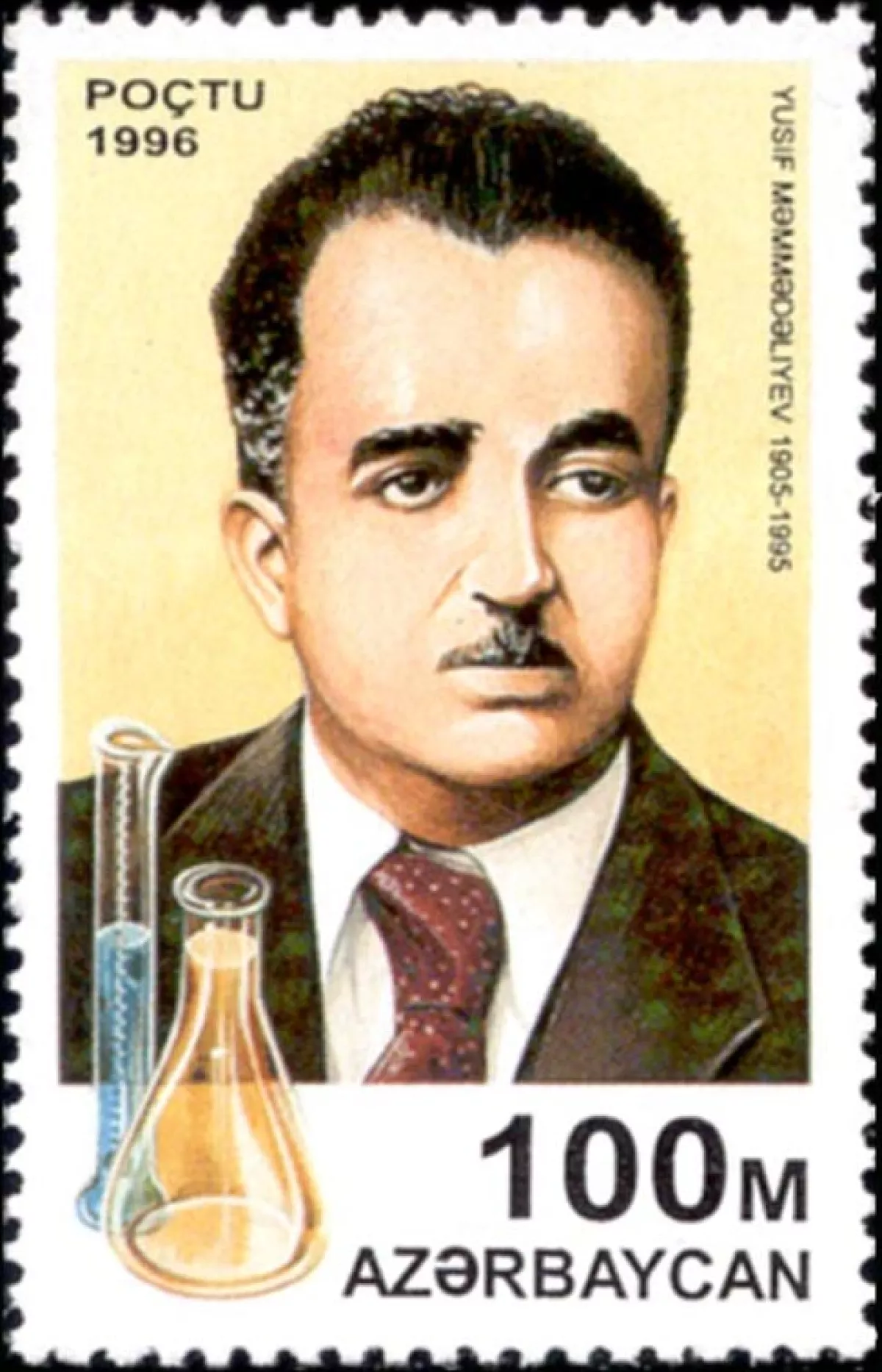
Among Mammadaliyev’s notable achievements were the synthesis of organosilicon compounds, the development of plastics, the creation of detergents, and the study of the medicinal properties of Naftalan oil. He also made a tremendous contribution to the training of scientific personnel, mentoring a generation of specialists who laid the foundation for the Azerbaijani school of petrochemistry, which went on to earn international recognition.
Actively representing Azerbaijani science at international conferences and symposia, Mammadaliyev helped strengthen scientific ties with leading countries around the world. Thanks to his initiative and involvement, several important institutions were established, including the Azerbaijan Astrophysical Observatory, the Manuscripts Foundation, the Sumgayit Chemical Research Centre, and others.
Author of over 200 scientific papers and six monographs, Yusif Mammadaliyev left a profound mark on Azerbaijani science. In 1945, he became an academician and one of the founding members of the Presidium of the Academy of Sciences of the Azerbaijan SSR, later going on to lead the institution. He played a key role in the establishment of the Institute of Petrochemical Processes in Baku and also served as Chairman of the Scientific and Technical Council of the USSR Ministry of the Oil Industry. In 1958, he was elected a corresponding member of the USSR Academy of Sciences.
For his outstanding service to the country, especially during the war years, Mammadaliyev was awarded the Order of Lenin and several other high state honours. His name remains firmly associated with the rise of petrochemistry in Azerbaijan and the international recognition of national science.
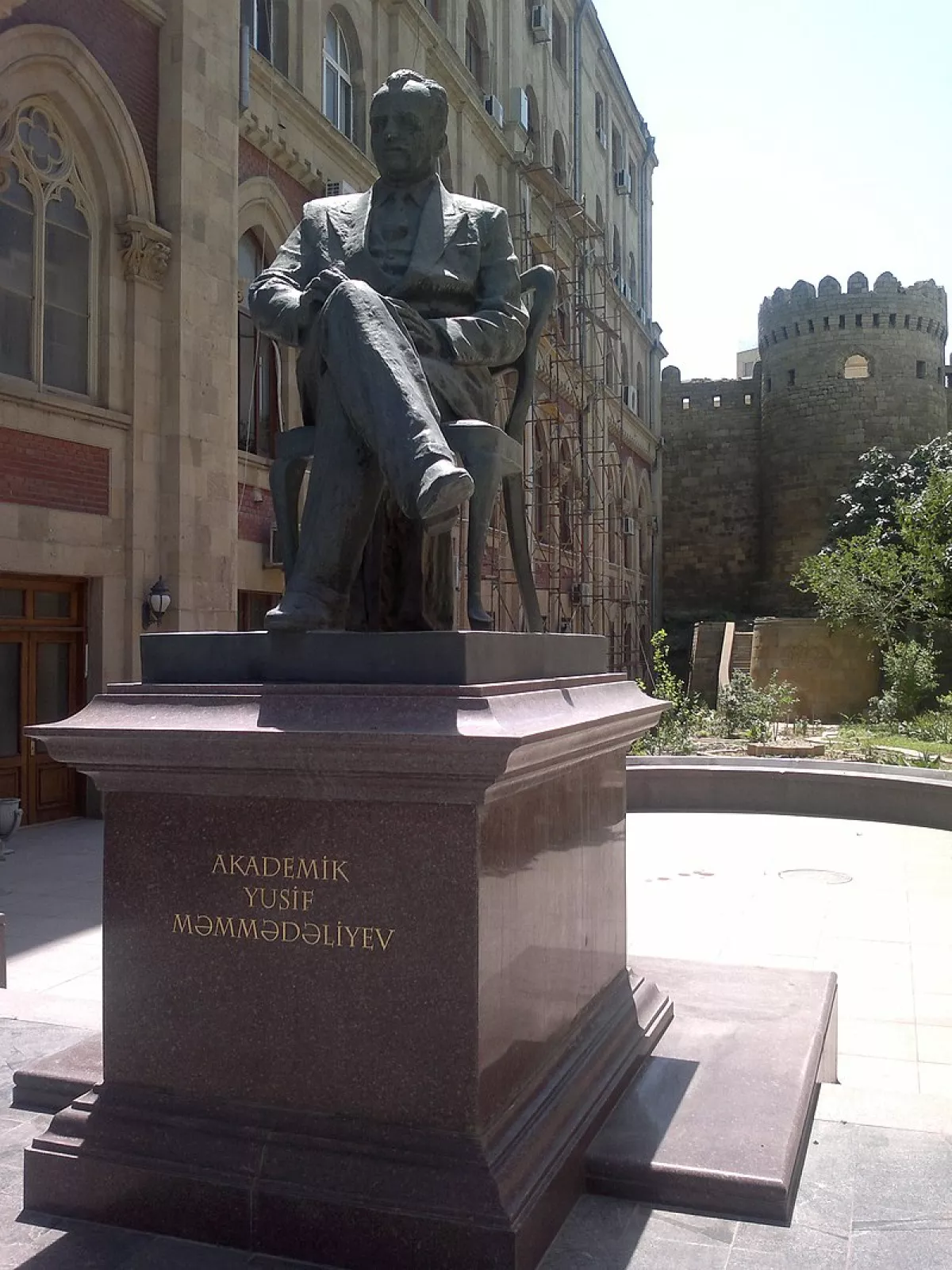
Today, Yusif Mammadaliyev’s name is commemorated in various ways: a street in Baku’s Sabail district bears his name, as does a settlement near the Shamakhi Astrophysical Observatory (Pirkuli), and the Nakhchivan State Pedagogical Institute. His scientific legacy continues to inspire new generations of researchers.
Aliashraf Alizade was a prominent Soviet geologist, Doctor of Geological and Mineralogical Sciences, professor, academician, and one of the founders of the Academy of Sciences of the Azerbaijan SSR. He made a significant contribution to the development of oil and gas geology, engaging in both scientific and organisational work in Azerbaijan and Turkmenistan.
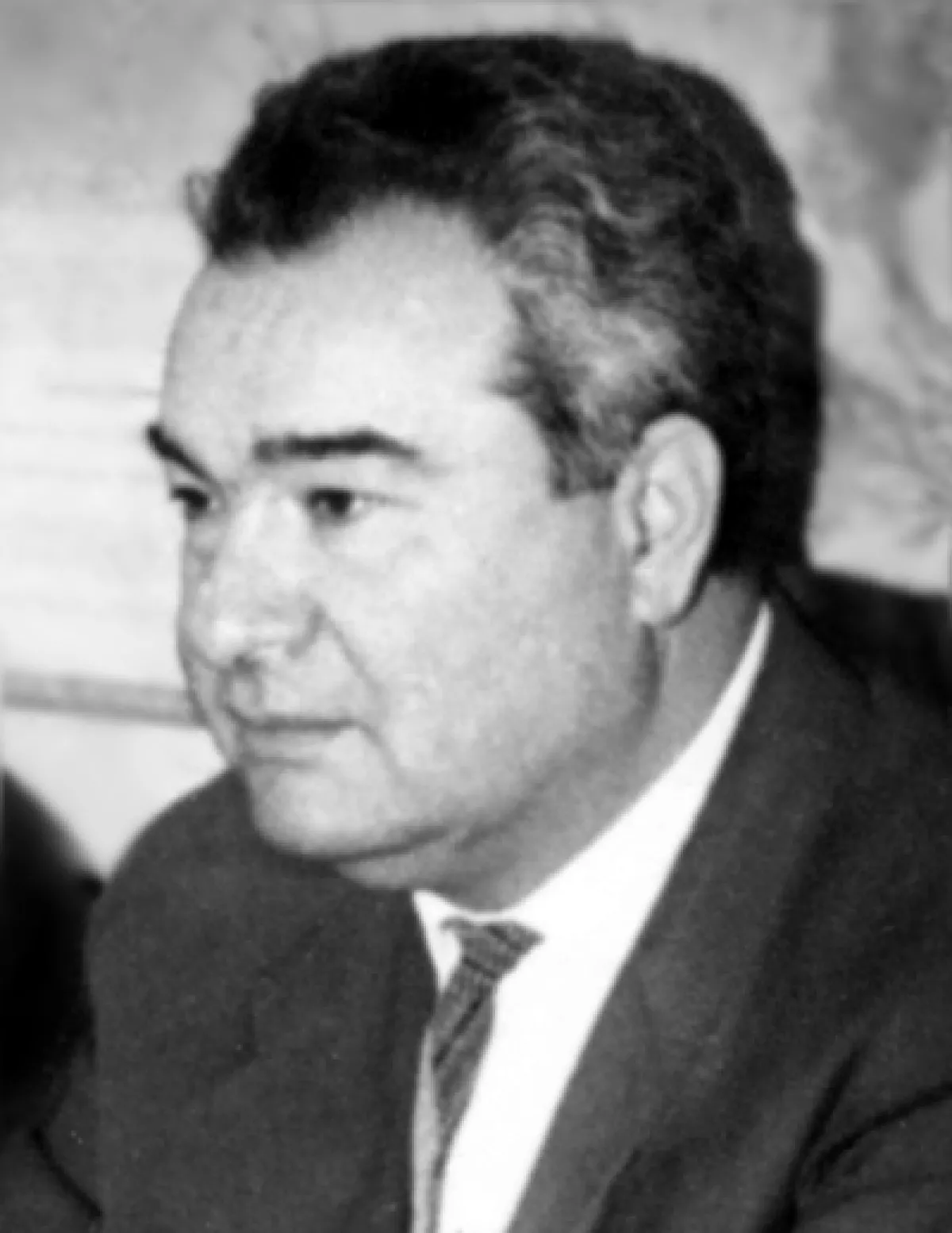
In 1930, he enrolled at the Lenin Georgian State Polytechnic Institute (now the Georgian Technical University), but after just six months transferred to the Azerbaijan Industrial Institute (now the Azerbaijan State University of Oil and Industry) in Baku, where he graduated with honours from the Faculty of Geological Exploration in 1935. Alizade dedicated his life to the study and development of oil fields.
He rose from the position of geologist to the head of major oil enterprises and played an active role in advancing scientific research and implementing new technologies in oil extraction. During World War II, he held key positions within party structures, ensuring oil supplies for the needs of the front.
In 1948, Aliashraf Alizade was removed from his post and sent to Turkmenistan, where from 1949 to 1950 he worked at the Turkmen branch of the Azerbaijani Research Institute of Oil Production. Under his leadership, key theoretical and practical challenges in the fields of regional and petroleum geology were addressed.
Between 1938–1946 and 1954–1959, he taught at the Azerbaijan Industrial Institute, and in 1945 he was awarded the academic title of professor. From 1950 to 1954, he continued his teaching career at the Turkmen Industrial Institute. From 1946 to 1950, Alizade also served as a deputy of the Supreme Soviet of the USSR.
He was twice awarded the Stalin Prize — once for the development of new oil fields and again for creating a compact electric perforator, which was widely used in the oil industry.
For many years, Aliashraf Alizade headed leading research institutions in the oil industry. From 1959 to 1970, he served as director of the Azerbaijani Research Institute of Oil Production (now the Institute of Petrochemical Processes named after Academician Yusif Mammadaliyev), and from 1970 onward, he led the Azerbaijani State Research and Design Institute of the Oil Industry.
His name is closely associated not only with the advancement of geological science, but also with the overall development of the republic’s oil industry. He authored several fundamental geological, tectonic, and oil and gas field maps of Azerbaijan. Alizade was also one of the pioneers behind the introduction of the shaft mining system for oil field development — a breakthrough that marked a new era in Azerbaijan’s oil extraction history.
Alizade also made his mark as the discoverer of several rich oil fields, leaving a significant legacy in the development of geological exploration science. In the late 1950s, he was the first to propose the potential of Mesozoic deposits for oil production, an idea that later sparked new research and discoveries.
Aliashraf Alizade left behind not only an outstanding scientific and organisational legacy but also made a substantial contribution to geological literature. He authored fundamental works that played a crucial role in the study of oil and gas-bearing regions of the Caucasus and the Caspian area. Among his most well-known publications are “The Maikop Formation of Azerbaijan and Its Oil Potential” and “Oil Fields of the Pre-Caspian Region” (both published in 1945), in which he thoroughly examined the geological structure and prospects for oil extraction in the region.
In subsequent years, Alizade published works such as “Paleogene Deposits of Azerbaijan” (1947), “Earth and Earthquakes” (1950), and the popular yet scientifically grounded book “Oil and Its Origin” (1957). He also studied the palaeogeography of ancient basins (“Palaeogeography of the Balakhany Stage Basin,” 1960) and conducted geophysical analyses of oil and gas-bearing structures (“Geophysical Study of the Geological Structure of Oil and Gas-Bearing Regions of Azerbaijan,” 1963).
Interestingly, a new genus of extinct gastropod mollusks was named in his honour — Alizadella Kabakova, further emphasising his impact on science that extended well beyond a single discipline.
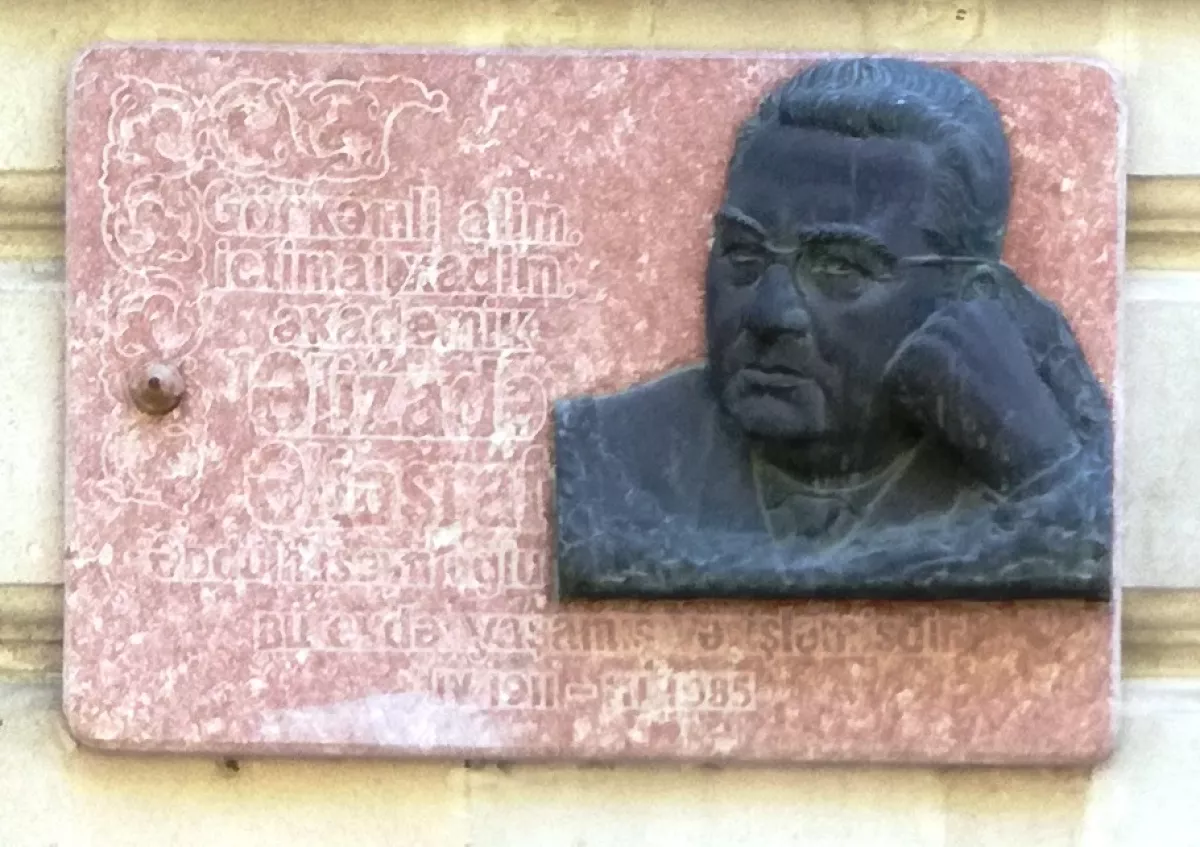
The memory of this outstanding scientist lives not only in his scholarly works. In Baku, one of the streets in the Narimanov district bears his name, serving as a reminder of a man who made a significant contribution to the development of geological science, the oil industry, and education in Azerbaijan.
Another central street in Baku is also named after another outstanding oil industry figure and statesman — Sabit Orujov, who served as the Minister of the Gas Industry of the USSR from 1972 to 1981.
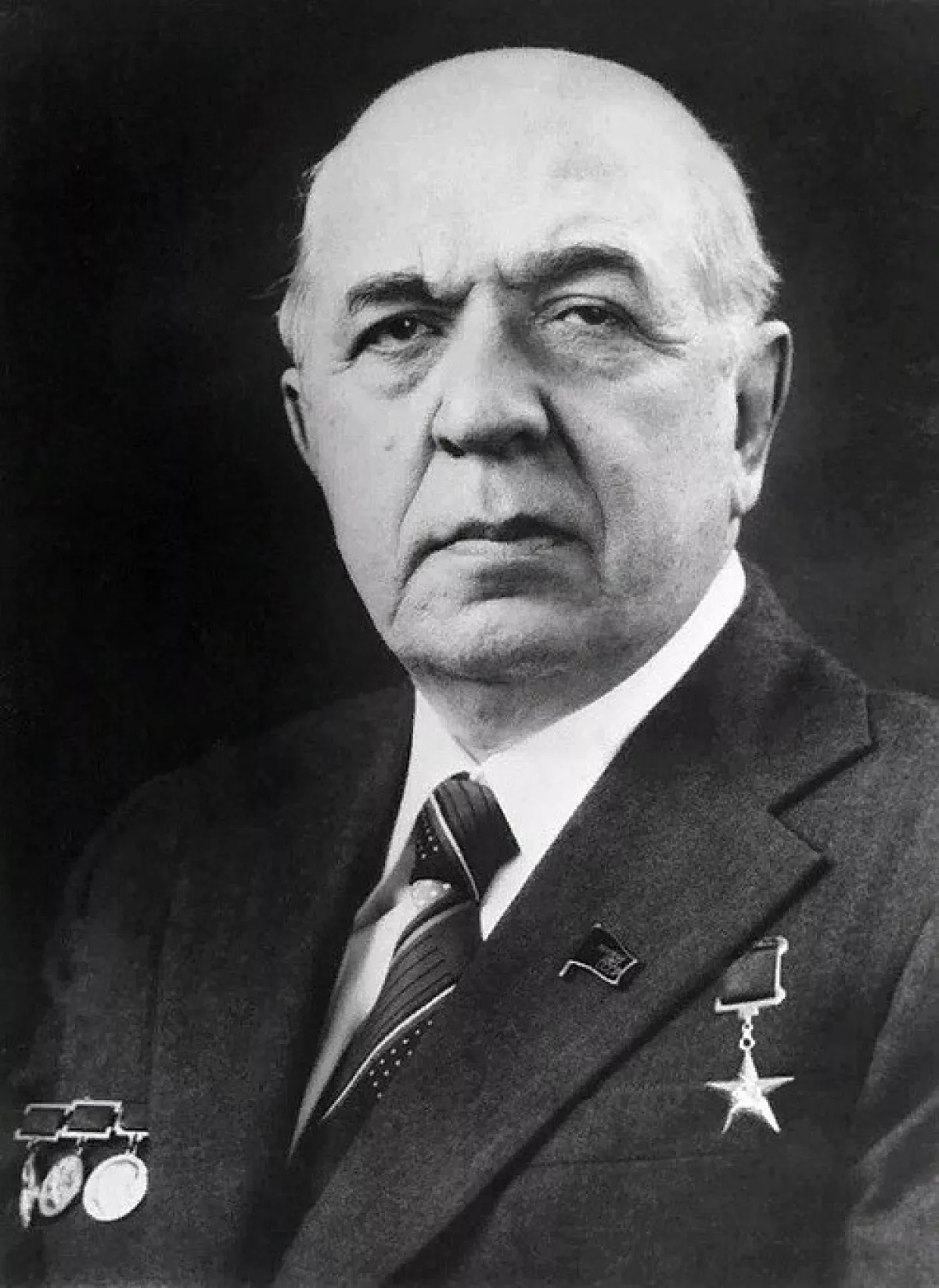
Sabit Orujov was born in 1912 in Baku into a working-class family. He began his career in 1928 as a rural teacher, and in 1936 graduated from the Azerbaijan Industrial Institute (now Azerbaijan State University of Oil and Industry). From that moment, his life became inseparably connected with the oil industry. Starting his work as a mechanic at a compressor station in an oil trust, he quickly advanced to assistant foreman, then foreman in oil extraction at the 5th oil field. He served as deputy head of the “Azneft” association and managed the “Stalinneft” and “Buzovnaneft” trusts.
From 1946 to 1948, he held the position of chief engineer at the “Krasnodarneft” association, and in 1948–1949, he was head of the “Aznefterazvedka” association. Beginning in 1949, Orujov worked in the Ministry of the Oil Industry of the USSR, where he led the Main Directorate for Exploration and Development of Offshore Oil Fields.
Since 1962, Sabit Orujov has held several key positions in the management system of the country’s fuel industry. He successively served as Deputy Chairman of the State Committee for the Fuel Industry, Deputy Chairman of the State Committee for the Chemical and Oil Industry under the USSR State Planning Committee (Gosplan), First Deputy Chairman of the State Committee of the Oil-Producing Industry, and from 1970 as First Deputy Minister of the Oil Industry of the USSR. In 1972, Sabit Orujov was appointed Minister of the Gas Industry of the USSR, a position he held for nearly ten years. In 1980, he was awarded the high honour of Hero of Socialist Labour.
Orujov was among the first to arrive at the Neft Dashlari (Oil Rocks) offshore oil field in 1948 and began drilling wells there. In the same year, together with Yusif Safarov, he co-developed an innovative design — a large-block individual marine foundation for offshore well drilling. This breakthrough opened new possibilities for developing offshore resources and laid the foundation for drilling at new oil fields in the Caspian Sea.
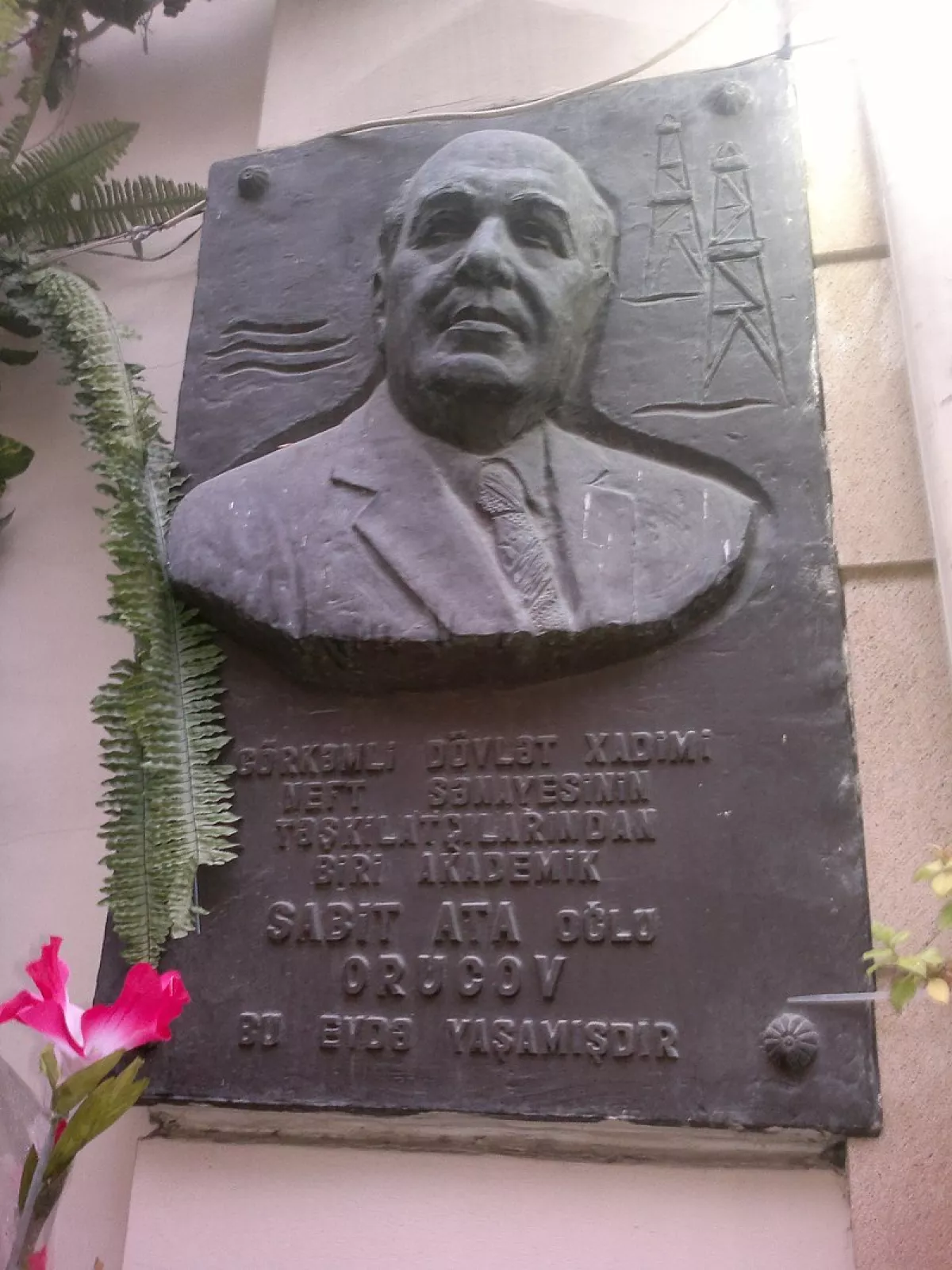
Sabit Orujov made an outstanding contribution to the development of the oil and gas industry of the Soviet Union and Azerbaijan. His name is commemorated across many parts of the former USSR. The Urengoy Gas Production Association and a promenade in the city of Nadym bear his name, a bust in his honour stands in Novy Urengoy, and one of the passenger vessels of the “Kaspmorneftegazprom” association is also named after him. His legacy is respected beyond Azerbaijan as well: a street in the village of Aleksandrovskoe in Russia’s Tomsk region and a Russian-language school in the city of Khiva, Uzbekistan, are named after him. A special mark of respect is one of the central streets in Baku’s Khatai district, which proudly carries the name of a man who devoted his life to building the energy strength of a vast country.
Another central street in Baku, which thousands of residents pass by every day, is named after another prominent statesman and talented organiser of the oil industry — Suleyman Vazirov.
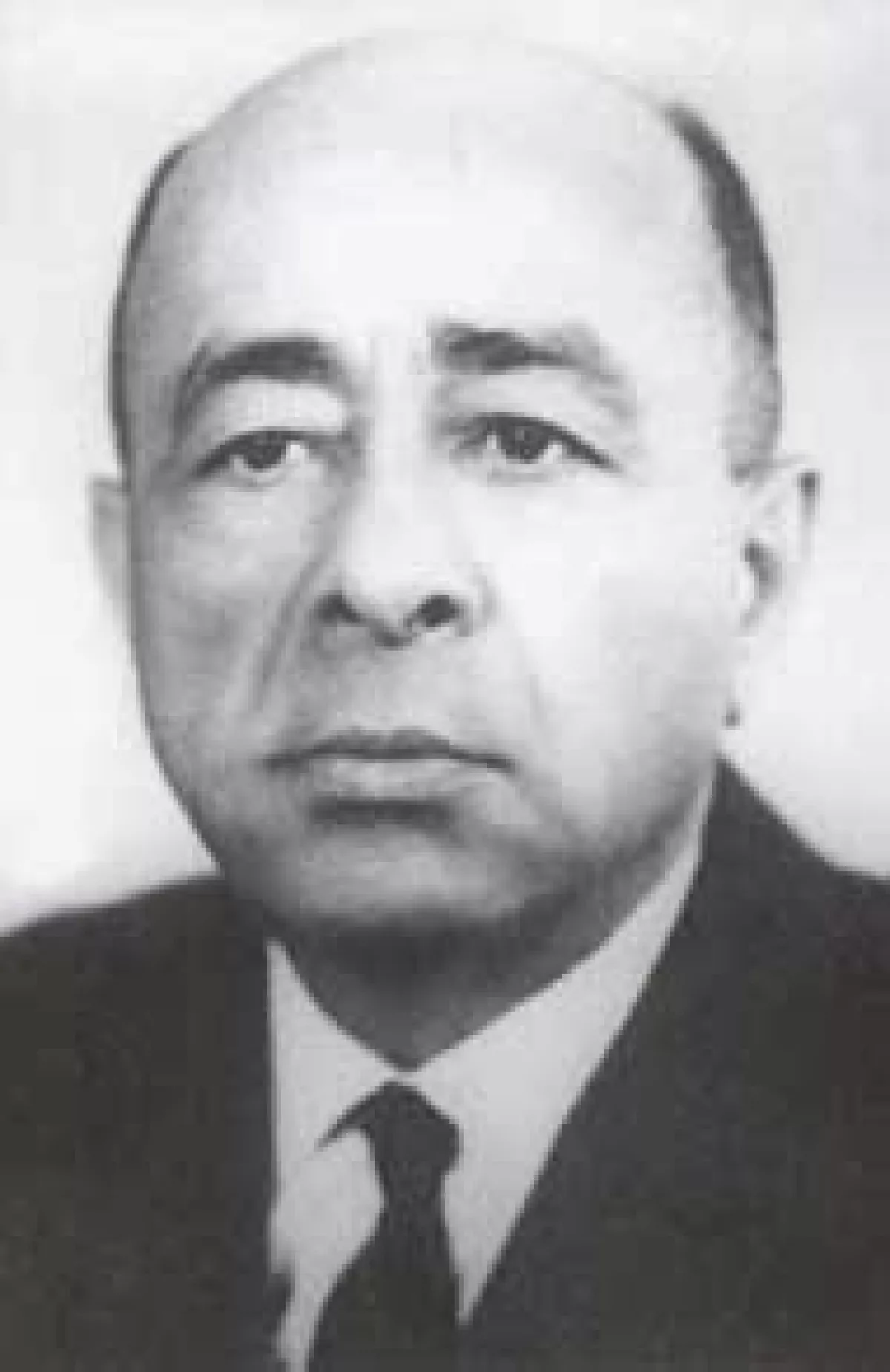
Suleyman Vazirov was born in 1910 in Baku to the family of rotmistr Azad-bey Vazirov. His path to professional success began with studies at the Shusha Real School, followed by the Baku Industrial-Economic Technical School. After graduating in 1927, he started working as a petroleum measurer at Bibi-Heybat, later becoming a technician at the marine oil field in Ilyich Bay. In 1928, he enrolled in the Mining Faculty of the Azerbaijan Polytechnic Institute, graduating in 1932 with a degree as a mining engineer specialising in oil field operations. He then continued his career working at the oil fields on Pirallahi Island.
From 1940, Vazirov served as Chief Engineer of Azneftekombinat, and from 1942, as the head of this largest industrial association. Thanks to his efforts and managerial talent, during World War II Azerbaijani oil workers extracted 75 million tonnes of oil and supplied the front with 22 million tonnes of gasoline and other petroleum products.
By decree of the Presidium of the Supreme Soviet of the USSR dated January 24, 1944, Suleyman Vazirov was awarded the title Hero of Socialist Labour for his outstanding achievements in increasing oil production, manufacturing petroleum products, exploring new fields, and drilling wells. He was also awarded the Order of Lenin and the Gold Star medal — symbols of national recognition and gratitude.
In 1948, Vazirov proposed and implemented the first sealed system for oil and gas collection at Baku oil fields — an innovative technical solution that played a crucial role in the industry's development. In the following decades, Suleyman Vazirov held key positions within the Soviet Union’s oil industry and government administration. He became the first Minister of the Oil Industry of the Azerbaijan SSR. For outstanding achievements in discovering and developing new oil fields, he was awarded the Stalin Prize, Third Degree, in 1951.
Suleyman Vazirov’s name is forever inscribed in the history of the oil industry and his native city. In recognition of his contributions, one of the streets in Baku’s Khatai district bears his name. He was not only an outstanding professional but also a true patriot who dedicated his life to serving the people and the prosperity of Azerbaijan.
To be continued.
Vahid Shukurov, exclusively for Caliber.Az








